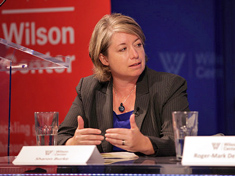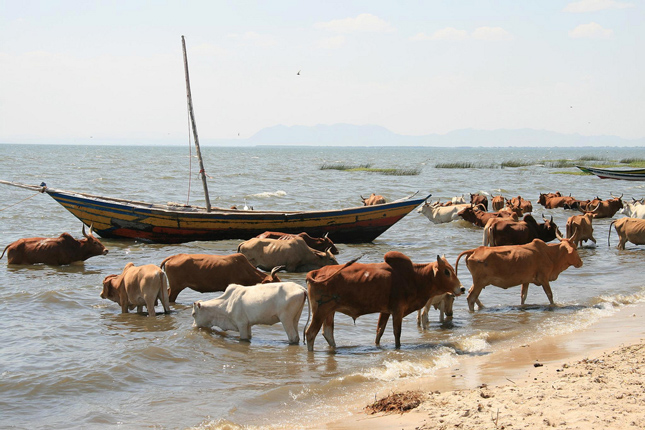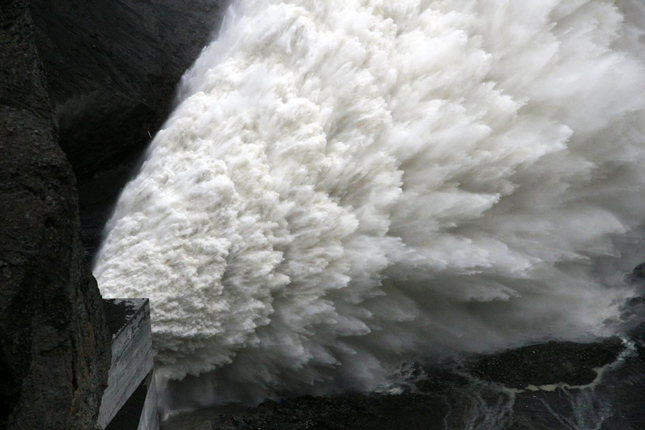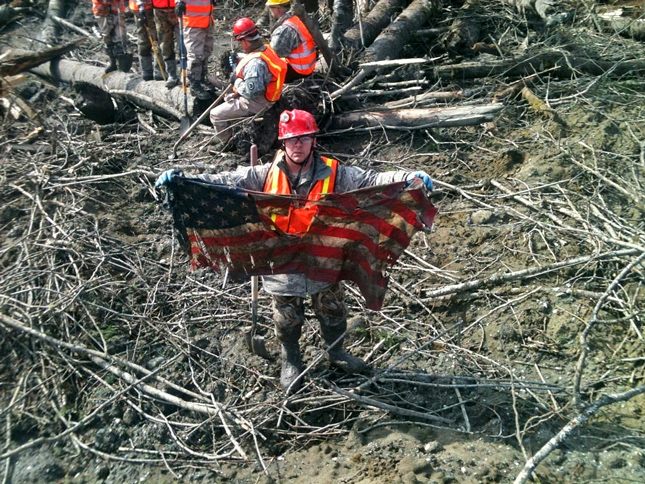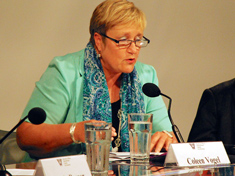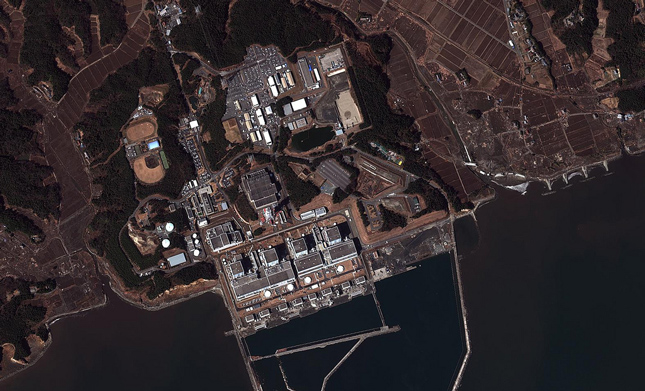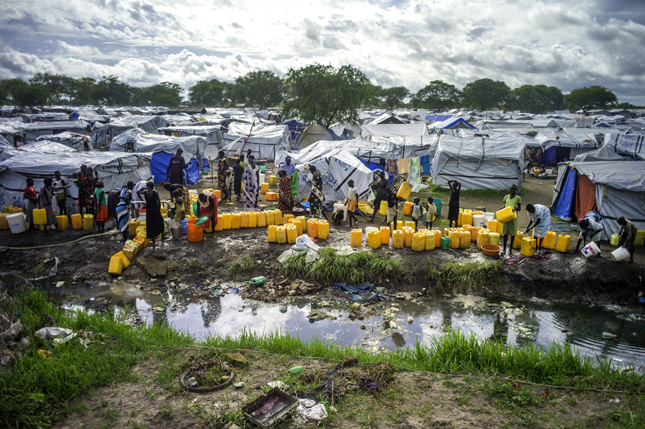-
Pentagon Releases New Climate Roadmap, Plans for Constrained Training, Challenged Infrastructure, Expanding Missions
›October 13, 2014 // By Schuyler Null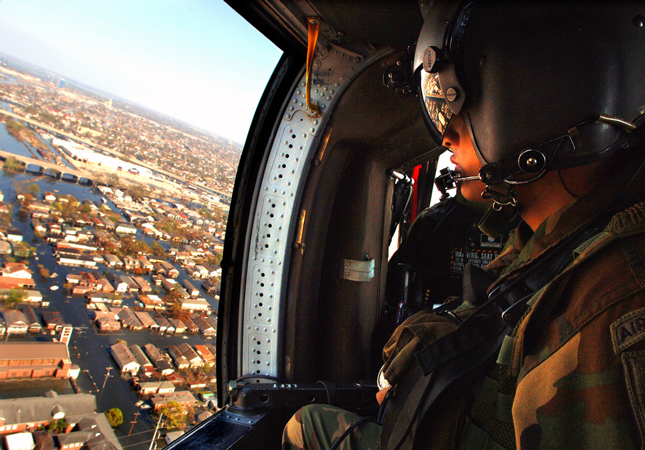
A series of executive orders signed by President Obama since his first year in office requires all federal agencies to begin planning for climate change and produce an updated adaptation plan by May of this year. The Pentagon is a little late, but today they released their second-ever climate roadmap.
-
Not All Security Questions Have Military Answers, Says Sharon Burke
›
The U.S. military has historically relied on its capacity for technological innovation to respond to new risks and crises. But, as Sharon Burke explains in this week’s podcast, the Pentagon has had to invent a new role for itself in response to a changing world.
-
Paola Adriázola and Stephan Wolters, ECC Platform
Investing in Collaboration to Manage Natural Resource Conflict
›September 25, 2014 // By Wilson Center Staff
Conflict over environmental resources endangers rural people’s livelihoods and can increase the risk of broader social conflict. Yet joint action to sustain shared resources can also be a powerful means for community building. The Strengthening Aquatic Resource Governance (STARGO) project demonstrated this in three ecoregions: Lake Victoria, with a focus on Uganda; Lake Kariba, with a focus on Zambia; and Tonle Sap Lake in Cambodia. The results of the project were released at an event in Berlin in early July 2014.
-
Hydro-Diplomacy Can Build Peace Over Shared Waters, But Needs More Support
›
From Ukraine and the Middle East to sub-Saharan Africa and East Asia, the world is engulfed in a series of significant international crises. But despite such urgent issues, it would be a grave mistake to forget about the structural foreign policy challenges – such as access to water – that could become the crises of the future.
-
Climate Change a National Security Issue, Say Local and National Leaders From Pacific Northwest
›
The effects of climate change “are here now” and pose a “serious challenge” for the United States, said Alice Hill, White House senior advisor for preparedness and resilience, at the Wilson Center on July 29. [Video Below]
-
Beyond Scarcity: Coleen Vogel on Reframing Water Security
›
What exactly is meant by “water security?” Different conceptualizations of the problem can lead to different, possibly misguided, solutions, says Coleen Vogel in this week’s podcast. Vogel, professor at the University of Pretoria and a lead author of the IPCC’s 4th and 5th assessment reports, calls for reframing the water security discourse in three key ways.
-
What Can the Environmental Community Learn From the Military? Interview With Chad Briggs on Scenario Planning
›September 8, 2014 // By Moses Jackson
Is it possible to prepare for the unexpected? Could anyone have foreseen, for instance, a nuclear meltdown triggered by an earthquake-induced tsunami? Or a brutal band of transnational militants quickly capturing Iraq’s largest dam while attempting to establish a new Islamic caliphate? Perhaps not exactly, but that shouldn’t stop us from anticipating unlikely events, says Chad Briggs, a risk assessment expert and strategy director of consulting firm GlobalInt.
-
Opportunity Costs: Evidence Suggests Variability, Not Scarcity, Primary Driver of Water Conflict
›
Nearly 1 billion people lack reliable access to clean drinking water today. A report by the Water Resources Group projects that by 2030 annual global freshwater needs will reach 6.9 trillion cubic meters – 64 percent more than the existing accessible, reliable, and sustainable supply. This forecast, while alarming, likely understates the magnitude of tomorrow’s water challenge, as it does not account for the impacts of climate change.
Showing posts from category environmental security.


